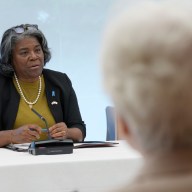The Hippest Moments in Opera History is a fairly subjective list. “Hip” means different things to different people.
1. 1787 was the premiere of Mozart’s Don Giovanni. Though the composer was an acclaimed musical genius, he was still rather naïve about romance. In order to learn more about seduction, the 29 year old sat down with the most infamous ladies’ man of the 18th century, Casanova. This Venetian adventurer was known as “the world’s greatest lover.” He criticized an early draft of the libretto because it blamed women for male hardship. According to Casanova, males are, “the seducing sex and the source of pain.”
2. 1886 in Rio de Janeiro, a local conductor was booed off the stage during the premiere of Verdi’s Aida. From the strings section, a 19-year-old cellist mounted the podium and then conducted the opera from memory. He was Toscanini, who became the first celebrity conductor in history, with perfect ears, a photographic memory, and a temper so hot he would scream at musicians until they cried.
3. 1954 saw soprano Maria Callas’s U.S. debut at the Lyric Opera of Chicago. She sang in Bellini’s Norma after having dropped from 200 to 135 pounds, though conventional wisdom stated that opera singers needed the extra weight to support their diaphragms for the additional vocal range and vibrato. The opera community worried that she was destroying her career. Instead, her voice was fine and she became one of the most celebrated singers in history. The idea that singers had to be fat was discredited.
4. 1984 Former Sex Pistols manager Malcolm McLaren made perhaps the only successful opera/techno crossover hit, with a track combining bits of Puccini’s Madam Butterfly with drum machines, spoken verses and synths. With McLaren at the forefront of punk and fashion, his sexy video for the track made opera cool to a completely untraditional audience. The track reached No. 16 in the English pop charts.
5. 2001 Conductor Daniel Barenboim brings a Berlin orchestra to Jerusalem, performing excerpts from Wagner’s opera Tristan und Isolde. There were protests because of the composer’s famous Anti-Semitism, but Barenboim argued that while Wagner was a despicable nutbar personally, his music was really great. Besides, music doesn’t make people Nazis or otherwise evil.
















